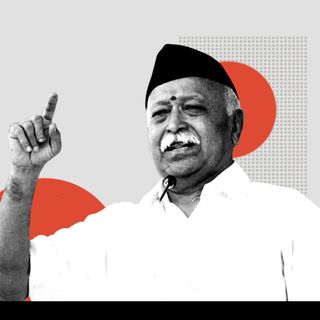
Swiggy Delivery Worker’s Death Prompts Action Against Pet Owners – But Lack of Labor Protections Remains Unaddressed
Gig workers aren’t classified as employees — and remain in limbo when it comes to labor protections. Platform apps thus remain unaccountable.

23-year-old Mohammad Rizwan, a Swiggy delivery worker from Hyderabad, was making a routine drop-off at a customer’s house when their pet dog chased him off the third floor of the building. He was rushed to a hospital and declared dead three days later. While local police did file an FIR against the pet owner, this is not a rare incident. The nature of gig work like Rizwan’s comes with several caveats: namely, the lack of proper legal protections for gig workers’ safety. This in turn confuses the question of who is responsible – while the pet owners were charged with negligence, Swiggy remains unaccountable for ensuring workers’ safety and compensation.
“Swiggy has neither reached out to us nor acknowledged his death yet,” Shaik Salauddin, president of the Telangana Gig and Platform Workers Union (TGPWU), told The News Minute.
The term “gig” initially described “professional and semiprofessional workers chasing short-term work”. However, with the proliferation of companies like Uber, Ola, Swiggy and Zomato, the need for low-paid, low-commitment jobs rose into the current gig economy, a labor market relying heavily on independent contractors and freelancers instead of permanent employees.
As a comparatively new version of employment, gig work “remains untested in Indian Courts”, with no specific legislation to ensure minimum wages, work hours and overtime, or leaves of absence. Gig workers don’t fall under any of the three recognized categories of labor—government employees, employees in Public Sector Undertakings (PSUs), and private sector employees. Gig workers, who “lack the ‘employee’ status under Indian law,” remain in limbo. They aren’t guaranteed occupational safety and health by their employer, nor are they protected from discrimination. This is because as per the gig work model, platforms like Swiggy and Zomato aren’t employers – and gig workers are “delivery partners” rather than employees.
As a result, “In businesses, we’ve seen a shift: transferring costs and risks of work to the workers… and managerial responsibilities onto the customers,” Kaveri Medappa, a researcher on gig labor from the University of Sussex, noted. The onus of Rizwan’s death, therefore, should have been two-fold: on the customers, and on the platform app. Only the former has thus far been held to account.
Related on The Swaddle:
In the Gig Economy, Customers are Complicit in Labor Exploitation
Of the four proposed Labor Codes, moreover, gig workers have been added to one of them – the Social Security Code, 2020. But as per this code, “gig and platform workers” remain distinct from “unorganized workers”, and thus aren’t entitled to the same protections and social securities. The few protections from accidents are vague and, as Medappa told The Swaddle: “There is accident insurance, but the bigger question is: how to avoid these accidents? Why are youngsters meeting with accidents?”
In light of precarious labor protections, in 2021 gig worker unions approached the Supreme Court to be reclassified as ‘unorganized workers’ in order to avail of the corresponding protections under existing labor laws. Through the petition, the union “hopes to hold the app-based companies accountable for the lives and livelihood of the drivers/driver-partners and delivery partners/executives,” it stated in a press release at the time.
NITI Aayog’s report on India’s gig economy showed how the gray area occupied by these workers is “raising significant issues for the labor law regime”—inherently challenging the notion of employment work. Companies like BigBasket, Flipkart and Urban Company have made public commitments to “paying workers at least the hourly local minimum wage after factoring in work-related costs”, but research shows that exploitation still occurs. Uber and Amazon, for example, have been harshly criticized for their treatment of gig workers—a 24 hour strike by Amazon workers in 2021 protested the significant cut in payment per package delivered. “Our wish is that we should get more money if we’re working more,” stated an Indian Federation of App-Based Transport Workers (IFAT) member, “but we are getting less money after working more.”
Related on The Swaddle:
Muslim Gig Workers Are Beginning to Face Bigotry on the Job — And Nobody Is Helping
Moreover, the nature of gig work comes with many risks that aren’t treated as workplace hazards: traffic accidents, discrimination, and violence. With platform apps promising customers shorter delivery times, workers are often forced to compromise on road safety. And after dodging death and accidents, few receive adequate respect from customers — or compensation from platforms. In a system designed to prioritize customer convenience and satisfaction, it is the worker who falls by the wayside. Rating systems built into the UI of each app is “leveraged by customers as blackmail for doing extra labor”, as The Swaddle noted — and in consumer-deliverer conflicts, the bias is against the exploited worker, who is “expendable.”
The solidarity between workers has increased since the pandemic— when delivery drivers were recognised as a “crucial labor force”. Unions are fighting for proper compensation, rights, and protections of gig workers. Without the support of proper laws, however, very little will actually hold these companies accountable for their employees’ safety.
In India alone, reports say that an estimated 9 to 11 million new jobs will be added to the gig workforce by 2025—a significant labor force without the proper protections afforded in traditional employer-employee relationships. Rizwan’s death shows how it is vital that gig workers have access to the same protections and benefits as the rest of the working population—customer satisfaction cannot trump the safety of human lives. For now, unions have begun to make the following call on social media: #DeliveryLivesMatter.
Akankshya Bahinipaty writes about the intersection of gender, queerness, and race, especially in the South Asian context. Her background in political science and communication have shaped her past multimedia and broadcasting experience, and also her interest in current events.
Related


Somy Ali Accused Ex‑Boyfriend Salman Khan of Physical, Emotional Abuse. Why Is No One Listening?
